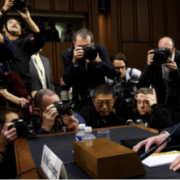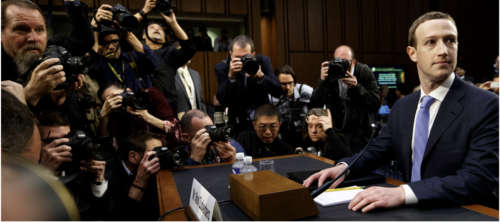Unregulated Tech
As we inch our way towards the US midterms, let’s take a quick audit of what are some of the ramifications of the US midterm and what it means to the technology sector.
The good news is that historically, tech stocks almost always burst to the upside after the results are in.
To say that tech has done well the last few years is an understatement, but that doesn’t make it better for this year as tech has poorly performed.
Luckily, Democratic or Republican rule has produced little tech regulation and that was a boon up until Fed Chair Jerome Powell decided to hike rates.
I believe that Democrats and Republics will continue to both turn a blind eye to what’s happening under the tech hood.
That won’t change.
Congress only likes to hype up its image as the big bad wolf, but at the end of the day, it is usually just showmanship which I boil down to politicians caring more about their short-term re-election cycle.
D.C. still allows tech to be the least regulated industry in America which is why prospects are still bright for Silicon Valley.
Part of regulation is intertwined with tracking and data surveillance which is a widely practiced tactic for many internet companies.
The last few years we have seen internet companies run riot on personal data attempting to seize anything they can get their fingers on.
Sure, for the most part, this dirty practice mostly involves selling digital ads and I believe this trend will get worse for consumers as tech firms reach for more revenue.
The overarching theme is that tech companies still get to do what they want to do and how they want to with unfettered impunity.
Then if we shine a torch on anti-trust implications to ecommerce companies like Amazon, there has been very little going on besides processional congressional hearings and a lot of jawboning that results in zilch.
The lack of regulation has allowed Apple to make arbitrary rules for their Apple store which usually favors their net profits.
The lack of regulation has allowed Amazon to prioritize Amazon search results for their own homegrown products which usually favors their net profits too.
The lack of regulation has allowed social media platforms to censor whatever they want to appease sponsorships and ad budgets with the unintended result that social media is now the arbiter of truth like Facebook.
The lack of regulation has allowed the Chinese communist-backed video app TikTok to steal 100s of millions of American’s personal data from facial recognition to location data while selling this on to private companies.
In short, tech gets away with a lot and there’s not much political motivation to reverse that trend.
The only substantial piece of tech legislation passed by Congress lately was when President Biden signed into law a $280 billion package meant to boost the domestic chip-making industry and scientific research.
Ultimately, the federal government has largely stayed in its lane allowing tech companies to profiteer and I fully expect them to give tech a pass for at least the next two years until the next Presidential election.
It was not Congress who popped the tech bubble, but the US Central Bank with higher interest rates.
Congress wished the gravy train kept going.
When interest rate expectations reverse, I would expect the status quo to re-emerge as a key investment thesis with tech growth leading the indexes to higher highs.
Even more specifically, the biggest tech companies will continue to exert a level of market power that is akin to a monopoly or duopoly, and that staying power is potent and time-tested.
Overheated tech shares coming back to reality is not an indictment on the long-term profitability of the sector, but more a buy-the-dip moment in the long-term bullish trajectory of the overall tech sector.
WASHINGTON HASN’T LAID A FINGER ON BIG TECH



